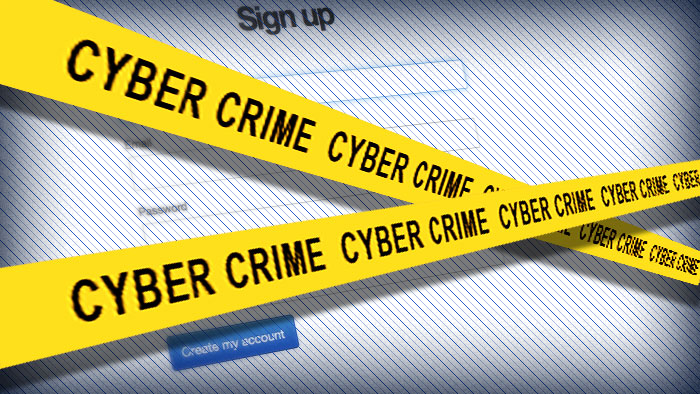
The Senate Standing Committee on Information Technology and Telecommunication on Tuesday unanimously passed the amended “Electronic Crime Bill 2016” which provides more safeguards and trims down the powers of investigation agencies and Authority.
Before passing the Bill, the committee succeeded in developing consensus among all stakeholders including IT Ministry, government, Opposition parties, investigation agency, media, civil society and NGOs.
The Bill has been submitted to the Senate of Pakistan, which will pass it during the current week.
After getting passed from Senate, bill will be sent back to the National Assembly as amendments are being made in the Bill. The Bill would become a law following that.
According to amended bill, children under the age of 10 years would have immunity and the proposed legislation will not be applicable on them.
The committee met today with Shahi Syed in the chair here on Tuesday where IT Minister and the committee appreciated and congratulated each others for the smooth passage of the Bill.
When the Bill was passed from the National Assembly Standing Committee on IT, headed by Cap Mohammad Safdar, serious concerns were expressed from different quarters including Opposition parties, NGOs, civil society and even the by the service providers while quoting threats to human rights, repercussion on freedom of speech and child rights.
Committee chairman criticized NACTA for not playing its due role and not attending the meetings.
According to the amended Bill, it shall also apply to any act committed outside Pakistan by any person if the act constitutes an offence under this Act and affects a person, property, information system, data or device located in Pakistan.
The amended proposed law will not be applicable provided that where the violation is committed by a licensee of the Pakistan Telecommunication Authority (PTA), the same shall be deemed to be a violation of terms and conditions of the license and shall be treated as such under the Pakistan Telecommunication (Re-organization) Act, 1996.
The amended Bill has provided safeguard to data protection as, except in cyber terrorism case, investigation agency would require Court permission to seize/access data.
The committee members had raised concerns on the chapter dealing with international cooperation and proposed that request from outside should come through a designated agency and should not be received through everybody.
The amended Bill has allowed a check while saying that a competent Court should be approached before releasing information to another country.
Furthermore the federal government shall be required to ask any foreign government, foreign agency or any international agency to keep the information provided confidential or use it for a specific purpose.
Furthermore, hate speech and glorification of an offence have been separated and different punishments have been proposed. In the initial Bill, these offences were dealt in the same section.
In the amended Bill child pornography has been dealt with separately. Under this section; whoever intentionally and without lawful justification produces, offers or makes available, distributes or transmits through an information system or produces for himself or for another person or possesses material in an information system that visually depicts— a minor engaged in sexually explicit conduct, (b) a person appearing to be a minor engaged in sexually explicit conduct; or (c) realistic images representing a minor engaged in sexually explicit conduct, shall be punished with imprisonment for a term which may extend to seven years, or with fine which may extend to five million rupees or with both.
The amended Bill further provides a check on PTA powers, as it could not block a website unless it was reported to it. Meanwhile it is giving a chance to the grieved party of filing a review against PTA’s decision for blocking a website etc.
Amendments were also being made in Section-15 of the Bill relating to “Unauthorized issuance of SIM cards etc”. Whoever sells or otherwise provides subscriber identity module (SIM) card, re-usable identification module (R-IUM) or *Universal Integrated Circuit Card (UICC) or other module designed for authenticating users to establish connection with the network and to be used in cellular mobile, wireless phone or other digital devices such as tablets (words in bold are added)*. However the portion stating, “And other portable memory chip designed to be used in cellular mobile or wireless phone for transmitting information” has been removed.
However the punishment for this section i.e. imprisonment for a term which may extend to three years or with fine which may extend to five hundred thousand rupees or with both remain the same.
The parliamentary panel also amended the section dealing with Spamming. The first two sub-section of the Bill remained the same however, amended the section 3 and added section 4 to this clauses.
(3) Whoever commits the offence of spamming as described in subsection (1) *by transmitting harmful, fraudulent, misleading or illegal* (bold words added in the bill) or engages in direct marketing in violation of sub-section (2), for the first time, shall be punished with fine not exceeding fifty thousand rupees and for every subsequent violation shall be (removed from the Bill) punished with imprisonment for a term which may extend to three months or with fine, *which may extend to one million rupees* (bold words removed)or with both.
Section 4 which has been added in the Bill, states—whoever commits the offence of spamming as described in sub-section (1) by transmitting unsolicited information, or engages in direct marketing in violation of sub-section (2), for the first time shall be punished with fine up to fifty thousands rupees and for every subsequent violation shall be punished with fine not less than fifty thousands rupees that may extend up to one million rupees.